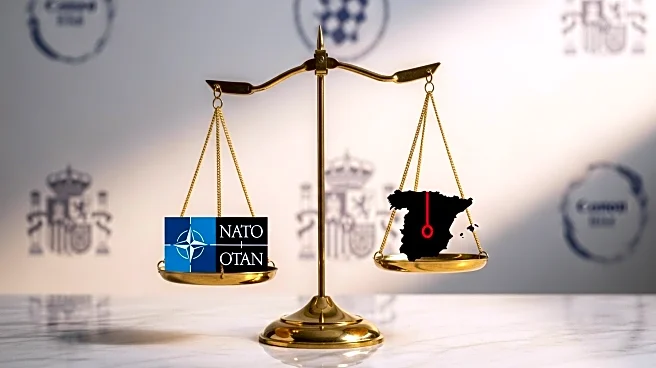What's Happening?
President Trump has suggested that Spain should be removed from NATO due to its failure to meet the newly established defense spending target of 5% of GDP. This proposal follows a NATO summit in June where members committed to increasing their defense budgets. Spain, led by Prime Minister Pedro Sanchez, has been the most vocal opponent of this increase, proposing a more modest target of 2.1% of GDP. Spain's current defense spending is the lowest among NATO members, at approximately 1.3% of GDP. Trump has intensified demands for increased defense spending from European NATO members since taking office again in January.
Why It's Important?
The suggestion to remove Spain from NATO highlights ongoing tensions within the alliance regarding defense spending commitments. If Spain were to be expelled, it could lead to significant geopolitical shifts and affect NATO's cohesion and strategic capabilities. The pressure to increase defense spending may strain relations between the U.S. and European allies, potentially impacting collaborative defense initiatives and military readiness. Spain's resistance underscores the challenges faced by countries balancing domestic priorities with international obligations.
What's Next?
Negotiations and discussions within NATO are likely to continue as members address the implications of the proposed spending targets. Spain may seek further exemptions or compromises to avoid expulsion, while other NATO members may reassess their positions on defense spending. The situation could lead to broader debates on NATO's future direction and the role of member states in collective security.
Beyond the Headlines
The push for increased defense spending raises ethical questions about prioritizing military budgets over social services such as education and healthcare. The debate also reflects broader concerns about the sustainability of high military expenditures in the face of economic challenges and shifting global priorities.










